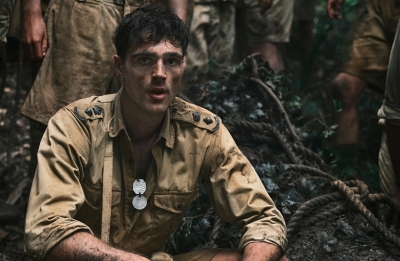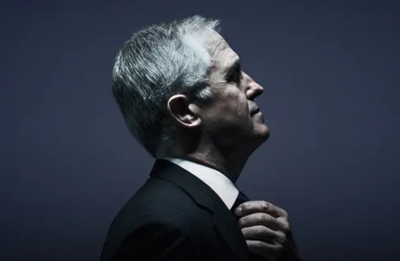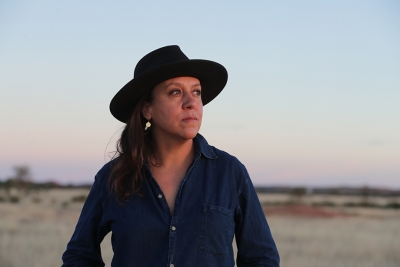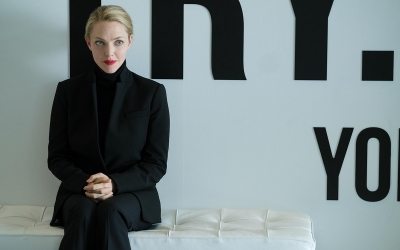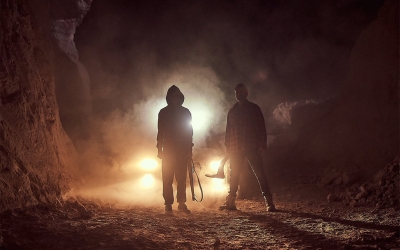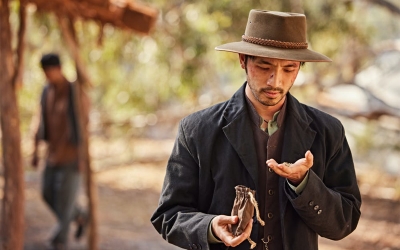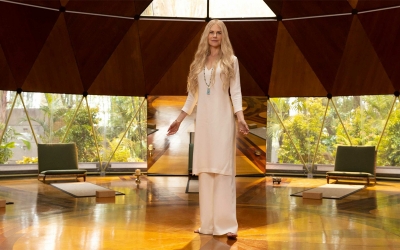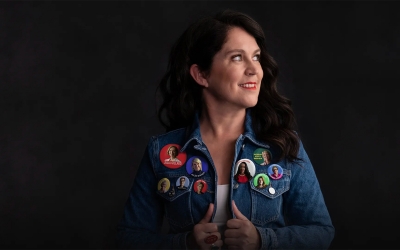Television
My Brilliant Friend: The Story of the Lost Child
The cricket-lover knows that a Test match – let alone a Test series – lasts long enough for the full sweep of human comedy to be on show. Ambition; petulance; perfection all too fleeting; horrible failure; hilarious pratfalls; selflessness and honour: it’s all in a day – or in five day’s play.
... (read more)At a pivotal moment in the new SBS miniseries The Australian Wars, director and presenter Rachel Perkins takes us to a place she says is ‘etched in the memory of my family. A place called Blackfellas Bones.’ Perkins turns to talk directly to camera: ‘You know, we turn away from things that we don’t want to see. We all do it. And I admit that I actually didn’t really want to make this documentary series because I knew that I’d have to spend years going through the horror of it. But … making this film has led me to this place … a place where many members of my family were killed. But my great grandmother survived to tell the story.’
... (read more)If there is a logical successor to the twentieth-century gangster epic, it may well be the modern-day high-stakes corporate drama. Both revolve around merciless protagonists operating by their own dubious moral code, amassing wealth and influence as they leave a trail of bodies (literal or figurative) in their wake. Instead of intimidation and assassination, our new corporate anti-heroes leverage powerful attorneys and hostile takeovers. Instead of doing business in the smoke-filled backrooms of family restaurants, they operate in biophilic, open-plan offices (and on the stock exchange). Instead of working outside capitalist structures, they bend it to their will. And instead of concealing their crimes and leading a double life, they are openly celebrated, sitting on boards and delivering TED talks.
... (read more)Eleven vials of smallpox virus were transported to Sydney on the First Fleet by Surgeon John White1. In the crucible of a filmmaker’s mind, this historical fact is forged into fantasy, the vials transmuted into eleven vampires, let loose to suck the lifeblood out of the local people. When that filmmaker is Warwick Thornton (Sweet Country, Samson and Delilah), this monstrous cargo becomes a metaphor to explore the atrocities of colonialism and their emotional sequelae, all wrapped in the idiom of genre. This is Firebite, an Aboriginal vampire thriller television series, co-created by Thornton and Brendan Fletcher (Mad Bastards) and co-directed by Thornton, Fletcher, and Tony Krawitz (The Tall Man).
... (read more)Prior to watching New Gold Mountain, the only account I had come across of the gold rush of the 1850s from a non-white perspective was in Monica Tan’s memoir, Stranger Country (2019). On a six-month road trip around Australia, Tan met Eddie Ah Toy, an elderly, fifth-generation Chinese-Australian man whose ancestors came to Australia to work on the goldfields. Recently for SBS, Tan wrote, ‘I belong to a new wave of Chinese-Australian creatives who are patiently sifting through the footnotes of Australian history and carrying on the restoration and revival work of those that came before us. Only time will tell if our work repositions the experiences of our community as central to Australia’s origin story.’
... (read more)Picture this: a taut, ninety-minute thriller featuring some of Hollywood’s biggest names, based on a bestseller from a literary big-hitter. A slow-burn mystery about a group of wealthy strangers, each with their own dark secrets and buried traumas, arriving at a boutique wellness spa for a ten-day retreat. Nicole Kidman starring as the enigmatic, ethereal Russian wellness guru Masha Dmitrichenko, who has specifically chosen these guests to carry out a series of risky experiments involving cutting-edge psychotherapy and mind-altering drugs. An hour and a half of rich character drama and suspense that builds to an intriguing philosophical twist. Now imagine that same story, stretched well beyond the longevity of its initial premise to a bloated eight-hour runtime, robbing it of coherent structure and narrative tension. An unwieldy hydra of tone and storytelling style. An exasperating parade of superficial soul-baring and perfunctory plot table-setting, leaving its exceptional cast treading water week in, week out. There you have Hulu’s recently concluded Nine Perfect Strangers, a show that epitomises the era of Peak TV while simultaneously embodying a compelling argument against it.
... (read more)12 March 1921: after four weeks of hard campaigning as a Nationalist candidate in the Western Australian state election, Edith Cowan received the news that she had won the seat of West Perth by forty-six votes, making her Australia’s first ever woman parliamentarian. Cowan was shocked: initially she didn’t want to run and discounted her chances of success. As the sole winner among five women candidates across the state, Cowan saw hers as a victory for all women. She used her new position to build on the social welfare and reform work in which she had been involved since the 1890s, promoting motherhood endowment, sex education, migrant welfare and infant health centres. Though her time in office was short (1921–24), Cowan had made history in taking a seat at the parliamentary table.
... (read more)

